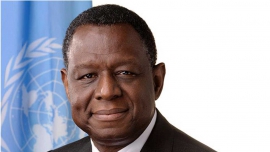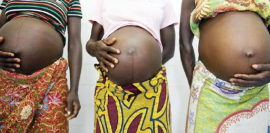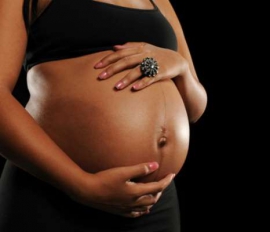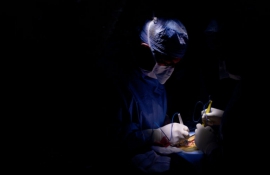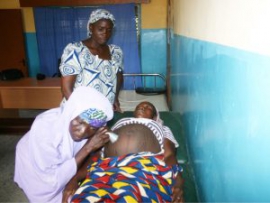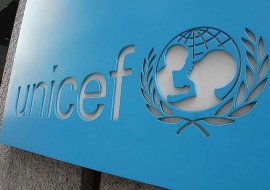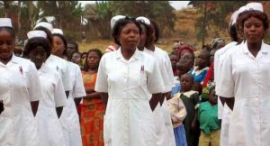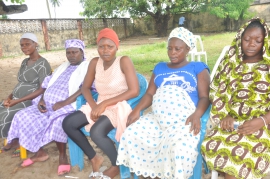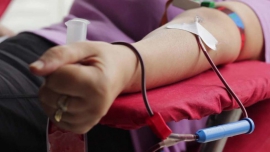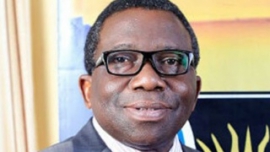Maternal Mortality
No woman should die of childbirth - UNFPA
Prof. Babatunde Osotimehin, UN Under-Secretary-General and the Executive Director of UN Population Fund (UNFPA) has said that it is no longer acceptable for a woman to die during childbirth.
Osotimehin told the News Agency of Nigeria (NAN) on the sidelines of an award dinner organized by the Nigeria Health Foundation in Newark, U.S.
The UNFPA chief said people should insist that both local and state governments must deliver healthcare to them.
Nasarawa Assembly to enact law on family planning to tackle maternal mortality
The Nasarawa State House of Assembly on Sunday, says it will enact a law to give family planning programmes full legal backing in the state to effectively tackle maternal mortality.
Alhaji Mohammed Opkede (PDP-Doma North), Chairman, House Committee on Health, disclosed this in Akwanga at the end of 3-day workshop on “Development of the Nasarawa State Costed Implementation plan for Family Planning.”
Between natural birth and CS: Women speak
One proponent of natural birth said babies born vaginally receive a coating of immune-boosting microbes, and their intestines are more likely to have early colonisation with beneficial bacteria-protections than babies delivered surgically.
WHO says medical practitioners should not undertake C-sections purely to meet a given target or rate, but rather focus on the needs of patients.
FG Commited To Attaining Zero Maternal Deaths
Mrs Adejoke Adefulire, the Senior Special Assistant to the Government on Sustainable Development Goals (SDGs) says the office will collaborate with stakeholders to attain zero under five mortality by 2030.
Adefulire gave the assurance on Saturday in Abuja at a national workshop organised by the Association of Female Medical Laboratory Scientists of Nigeria (AFMLN) with the theme; “Contributing to SDG three by improving child and maternal health through enlightenment and education.
UNICEF Calls For Men Involvement In Promoting Maternal, Child Health
The United Nations has called for the involvement of men in tackling the alarming rate of maternal and child mortality in Nigeria.
Maternal, Newborn and Child health (MNCH) Manager, UNICEF Nigeria, Dr. Linda Akondeng, stated this at a media conference organised by “The White Ribbon Alliance Nigeria” (WRAN), for the formal presentation of Jim Iyke as WRAN special Envoy/Goodwill Ambassador for MNCH in Abuja.
Mental Health is Important! Postpartum Support Network Africa held the first World Maternal Mental Health Day in Africa
Recently, Postpartum Support Network Africa (PSN Africa) held the first ever World Maternal Mental Health Day Conference in Africa!
World Maternal Mental Health day draws attention to essential health concerns for mothers and families. Life changes around pregnancy make women more vulnerable to mental illness, the most prevalent of which is postpartum depression (depression after childbirth).
Save lives, donate blood
Every year, Nigeria loses an estimate of 59,000 women to predictable and easily prevented deaths. Each week, 1,131 women die in childbirth. In the last seven days, 1,131 Nigerian families have lost mothers, friends, sisters and daughters to pregnancy. Every week, more children are forced to grow up without mothers, and are subjected to the difficulties that entails. These children are more likely to die before their fifth birthday.
Nigeria ranked 7th among countries facing shortage of health workers
Nigeria is ranked 7th among 57 countries classified as facing a critical shortage of health workers, it was learnt Tuesday
.
According to the Minister of Health, Prof Isaac Adewole the country has a shortage of 144,000 health workers. Nigeria is ranked second in Africa behind Ethiopia with 152,000.
Presently, the country boasts of 240,000 nurses and midwives and by 2030 the country will be needing 149,852 doctors and 471,353 nurses and midwives.

